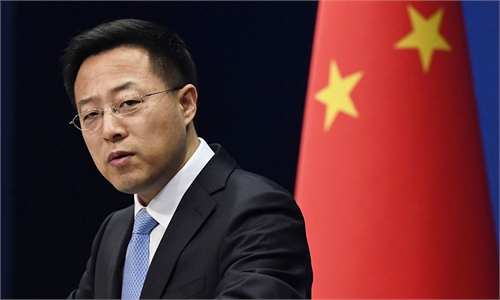Czech politicians warned of 'abandoning national interests for political capital to West' if nation quits China-led '16+1' investment platform

A view of the empty Old Town Square in Prague, the Czech Republic Photo: Xinhua
The Czech Republic is reportedly to make a decision on whether it will quit from cooperation between China and Central and Eastern European (CEE) Countries, a cross-regional investment platform involving China and 16 European countries ("16+1" mechanism). Abandoning national interests in exchange for political capital to the West reflects the selfishness and shortsightedness of Czech's anti-China politicians, observers warned.
A resolution calling for the Czech Republic to quit the "16+1" mechanism has been passed to the government after the Czech parliament's foreign affairs committee unanimously approved it in mid-May, Al Jazeera reported Wednesday.
The cooperation platform is based on mutual recognition as well as mutual benefit, and the Czech Republic has all the rights to opt in or out, Chinese observers told Global Times. However, the Czech Republic's decision to forgo mutually beneficial cooperation with China is more like a political gesture, sacrificing the economic interests of its citizens in exchange for political capital from the West, the observers said.
"The move is selfish and shortsighted," Cui Heng, an assistant research fellow from the Center for Russian Studies of East China Normal University, told the Global Times on Thursday. "These politicians don't care about their country's development interests, but they just care about their personal political interests."
"China's cooperation with other CEE countries will not be affected. If the Czech withdraws from the '16+1' mechanism, it just means that China's large economic development dividends will be enjoyed by other countries," Cui Heng said.
Jan Lipavsky, Czech's foreign minister who has long been a China hawk, said that the Czech Republic has seen little investment from China through the 16+1 platform despite grand promises.
In response to the accusation, observers noted that it cannot be blamed on China. "What the Chinese government did in the framework of '16+1' is to improve the policy environment and political environment for investment into the CEE region and provide supports. It is the market and businesses that play the main role," said Cui Hongjian, director of the Department of European Studies at the China Institute of International Studies. "It is the Chinese companies that chose other countries in this region rather than the Czech Republic when making investment decisions because of conditions in the country."
A series of moves that some Czech politicians made in recent years have made the country less attractive to Chinese investors than other regional countries, including a delegation from the Czech Senate visiting the island of Taiwan in 2020, a ban on Chinese participation in bidding for the construction of 5G networks or new nuclear power plants, frequent anti-China statements by local governments, and support for the Taiwan island's "participation" in international organizations, experts noted.
"Many CEE countries have benefited greatly through the '16+1' cooperation mechanism," Cui Heng said. Serbia and Greece have benefited through Chinese investment and trade under the mechanism, and they continue to welcome investment from China.
"This is proof that the '16+1' mechanism can play a positive role," he said.
Cui Hongjian noted that for small CEE countries, domestic politics are relatively immature, with many political parties and politicians also very immature due to their transitional political stage.
"These countries' foreign policies are greatly affected by domestic political changes and often have big changes in phases, which is quite normal," Cui Hongjian said, citing Lithuania as one of them.
In 2021, Lithuania pulled out of the then "17+1 platform" and urged other European countries to follow suit.
"For Lithuania, its economic dependence on China is relatively small. Thus, Lithuania became a vanguard of anti-China forces because the Lithuanian government believes that the loss of real benefits is much smaller than the political gains it gained through this move," Cui Heng said.
However, even Lithuania, which is less economically dependent on China, continued to see a significant decline in investment attractiveness after withdrawing from the '17+1' mechanism and adopting a strong anti-China stance, Lithuanian media reported in January.


